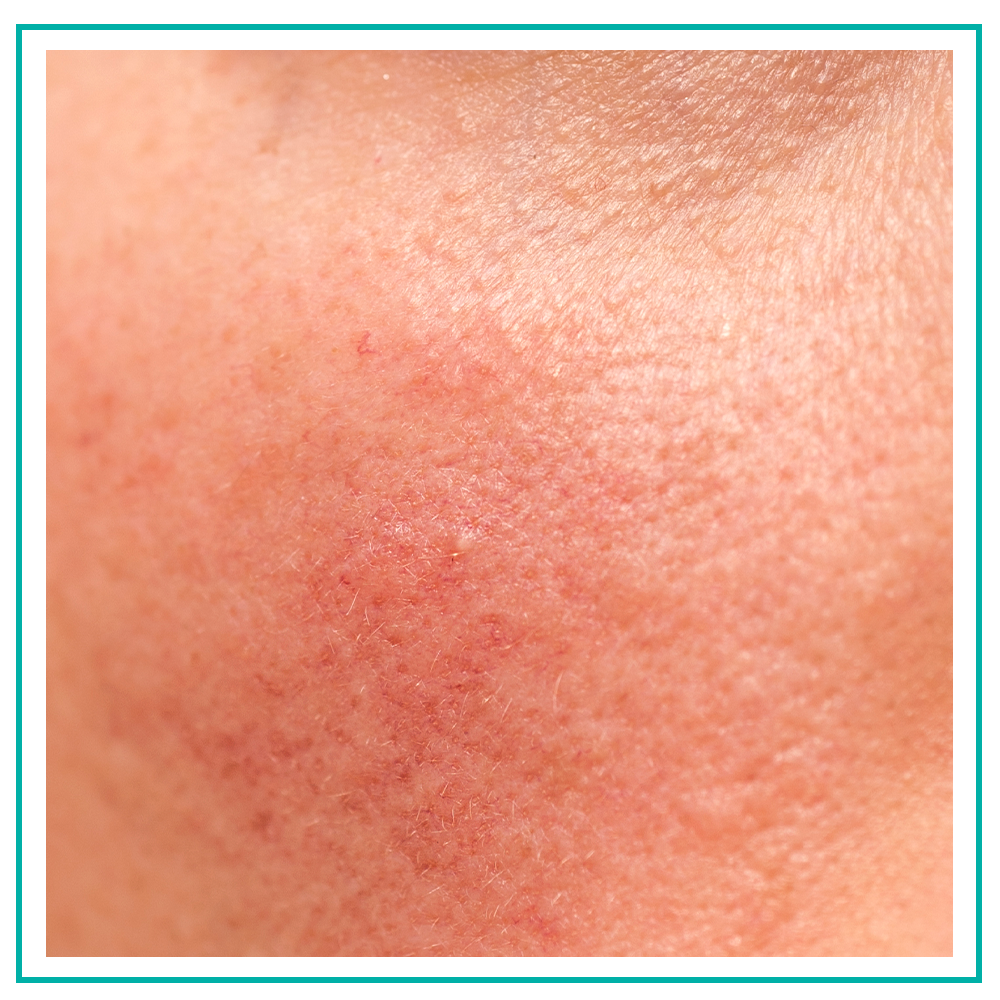About Rosacea
Rosacea is a skin condition that can causes redness and pimples on your nose, cheeks, chin, and forehead. The redness and pimples may come and go but often get worse with time. Rosacea can sometimes be confused for acne. While it is a long-term condition, lifestyle changes and treatments can control the symptoms. There are four different types of rosacea, and treatment depends on the type you have.
What are the symptoms?
- Facial flushing or redness.
- Tiny red veins on the face that look like spiderwebs.
- Red bumps or pimples on the cheeks, nose, forehead, or chin.
- Burning or stinging facial skin, especially when lotions or medicines are applied.
- A bulb-shaped nose.
- A gritty feeling of the eyes.
We recommend scheduling an evaluation with one of our dermatologists or certified PAs to determine the type of rosacea you have and create an invidualized treatment regimen for controlling your symptoms. However, the following recommendations apply to all patients with rosacea.
Avoid anything that may trigger your rosacea. Common triggers include:
- Heat
- Sunlight
- Spicy foods
- Hot beverages
- Alcohol
- Stress or heightened emotions
- Skincare products that can be irritating, such as alcohol-based products, toners, astringents, acids, scrubs, and exfoliants. Stick with products made for sensitive skin.
Use mild, fragrance-free skincare products and wear a broad-spectrum sunscreen with an SPF of 30 or higher every day.


